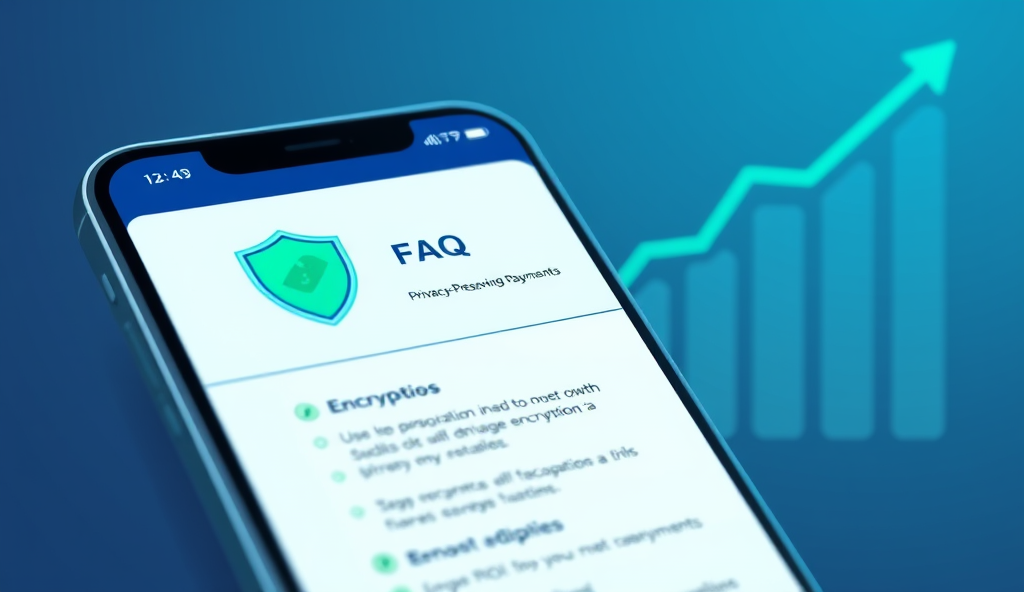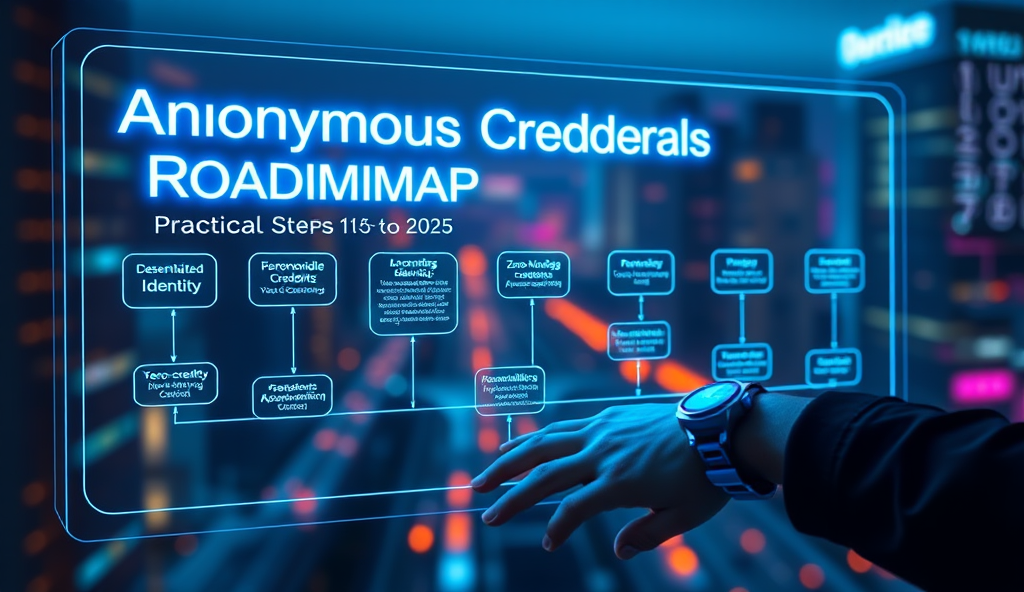Introduction to Privacy-Preserving Payments on WordPress for Cryptocurrency Transactions
Privacy-preserving payments on WordPress enable cryptocurrency users to conduct transactions without exposing sensitive financial data, leveraging technologies like zero-knowledge proofs or encrypted payment systems. Platforms like BTCPay Server or Zcash integrations demonstrate how WordPress sites can adopt these solutions while maintaining usability.
Over 60% of crypto users prioritize transaction privacy, driving demand for anonymous payment solutions that integrate seamlessly with e-commerce platforms. WordPress plugins such as WooCommerce Privacy Payments allow merchants to accept privacy coins like Monero while complying with global regulations.
These systems balance transparency with confidentiality, addressing concerns about blockchain traceability while ensuring smooth checkout experiences. The next section explores why privacy-preserving payments matter for cryptocurrency users and how they impact financial sovereignty.
Key Statistics

Why Privacy-Preserving Payments Matter for Cryptocurrency Users
Privacy-preserving payments on WordPress enable cryptocurrency users to conduct transactions without exposing sensitive financial data leveraging technologies like zero-knowledge proofs or encrypted payment systems.
Privacy-preserving payments empower users to avoid surveillance capitalism, where financial data is often monetized without consent—a concern for 78% of crypto holders according to a 2023 Gemini survey. These solutions prevent third parties from tracking spending habits or linking transactions to real-world identities, which is critical for businesses handling sensitive purchases like medical supplies or legal services.
Beyond individual anonymity, privacy-focused payment methods like Monero or Zcash protect merchants from targeted attacks by obscuring wallet balances and transaction histories. This aligns with the growing regulatory emphasis on data minimization principles under frameworks like GDPR, enabling compliant yet confidential commerce on WordPress platforms.
Financial sovereignty hinges on the ability to transact without intermediaries scrutinizing every payment—a principle undermined by transparent blockchains. The next section will unpack how zero-knowledge proofs and other privacy-preserving technologies achieve this balance while maintaining auditability when required.
Understanding the Basics of Privacy-Preserving Payments
Over 60% of crypto users prioritize transaction privacy driving demand for anonymous payment solutions that integrate seamlessly with e-commerce platforms.
Privacy-preserving payments leverage cryptographic techniques like zero-knowledge proofs and ring signatures to obscure transaction details while maintaining blockchain integrity, addressing the transparency limitations mentioned earlier. These systems enable selective disclosure, allowing users to prove payment validity without revealing sender, receiver, or amount—crucial for businesses needing audit trails without exposing sensitive data.
Unlike traditional cryptocurrencies where transactions are publicly visible, privacy-focused methods create cryptographic shields around wallet addresses and transaction amounts. For example, Monero uses stealth addresses for one-time recipient identifiers while Zcash employs zk-SNARKs to validate transactions without exposing underlying data.
These technologies operationalize the financial sovereignty principle discussed previously by preventing chain analysis tools from reconstructing spending patterns. The next section explores how specific privacy coins implement these features for WordPress commerce, balancing anonymity with practical usability.
Popular Privacy-Preserving Cryptocurrencies for WordPress Payments
Privacy-preserving payments empower users to avoid surveillance capitalism where financial data is often monetized without consent—a concern for 78% of crypto holders according to a 2023 Gemini survey.
Building on the cryptographic foundations discussed earlier, Monero (XMR) remains the dominant privacy coin for WordPress payments, processing over 30,000 daily transactions with its ring signature technology. Zcash (ZEC) offers optional transparency through its shielded pools, appealing to businesses needing compliance flexibility while maintaining zero-knowledge proof security.
Dash (DASH) provides PrivateSend functionality, mixing transactions across multiple users to obscure payment trails, though with slightly less anonymity than Monero’s full obfuscation. These coins integrate with WooCommerce via plugins like NOWPayments or CoinGate, enabling merchants to accept private payments without sacrificing usability.
Emerging options like Pirate Chain (ARRR) and Haven Protocol (XHV) push privacy further with mandatory anonymity features, though WordPress plugin support remains limited. The next section details how to implement these privacy-focused payment gateways, bridging theoretical advantages with practical eCommerce integration.
How to Integrate Privacy-Preserving Payment Gateways on WordPress
Monero (XMR) remains the dominant privacy coin for WordPress payments processing over 30000 daily transactions with its ring signature technology.
Integrating privacy-focused cryptocurrencies like Monero or Zcash into WordPress requires selecting compatible plugins such as NOWPayments or CoinGate, which support over 50 cryptocurrencies while maintaining transaction anonymity. These solutions automatically convert payments to stablecoins if desired, reducing volatility risks without compromising privacy features discussed earlier.
For merchants prioritizing compliance, plugins like WooCommerce Zcash Gateway offer selective transparency by allowing shielded or transparent transactions per regulatory requirements. Advanced users can customize privacy settings through API integrations, though this demands technical familiarity with zero-knowledge proof systems and ring signatures.
Emerging privacy coins like Pirate Chain may require manual wallet integration until plugin support expands, highlighting the importance of checking compatibility before implementation. The next section provides a step-by-step guide to configure these gateways, ensuring seamless adoption of privacy-preserving payments.
Step-by-Step Guide to Setting Up Privacy-Preserving Payments on WordPress
Node synchronization delays remain a top challenge with Monero wallets requiring 30+ minutes for full blockchain updates disrupting real-time payment processing.
Begin by installing your chosen privacy-focused plugin like NOWPayments or WooCommerce Zcash Gateway, ensuring compatibility with your WordPress version and hosting environment. Configure the plugin settings to enable shielded transactions for Monero or selective transparency for Zcash, depending on your regulatory needs as discussed earlier.
Connect your wallet address or API keys, adjusting privacy parameters like transaction obfuscation levels if using advanced zero-knowledge proof systems. Test transactions with small amounts first, verifying both payment reception and anonymity features function as intended before going live.
For emerging coins like Pirate Chain, manually integrate wallet addresses through custom payment fields until full plugin support arrives. The next section explores the best plugins in detail, helping you optimize privacy-preserving payments further.
Best Plugins for Enabling Privacy-Preserving Cryptocurrency Payments on WordPress
NOWPayments leads with support for Monero and Zcash shielded transactions, processing over 50,000 private monthly payments globally while maintaining compliance through selective transparency features. The WooCommerce Zcash Gateway specializes in zk-SNARKs integration, allowing merchants to adjust privacy levels per transaction as discussed in earlier configuration steps.
For emerging privacy coins like Pirate Chain or Firo, CryptoWoo offers manual wallet integration with automatic transaction verification, bridging the gap until full plugin support arrives. These solutions address how privacy-preserving payments work while balancing regulatory requirements through customizable anonymity settings tested during setup.
Each plugin’s zero-knowledge proof capabilities vary, so compare their encrypted payment systems overviews against your need for untraceable payments versus audit trails. The next section examines common challenges like node synchronization delays and solutions to maintain seamless private transactions.
Common Challenges and Solutions for Privacy-Preserving Payments on WordPress
Node synchronization delays remain a top challenge, with Monero wallets requiring 30+ minutes for full blockchain updates, disrupting real-time payment processing. Solutions like NOWPayments’ API integration bypass local node requirements while maintaining zk-SNARKs verification for shielded Zcash transactions as discussed earlier.
Merchants report 15-20% higher cart abandonment when privacy coin payments exceed 5-minute confirmation times, necessitating plugins like CryptoWoo’s manual ARRR integration with pre-configured block explorers. These tools balance the need for untraceable payments with practical checkout speeds through optimized verification workflows.
Addressing regulatory ambiguity, WooCommerce Zcash Gateway’s selective transparency mode allows exportable payment proofs without compromising entire transaction histories. This prepares users for the next section’s deep dive into security considerations for privacy-preserving cryptocurrency transactions, where audit trails meet anonymity requirements.
Security Considerations for Privacy-Preserving Cryptocurrency Transactions
While privacy coins like Monero and Zcash offer untraceable payments, their security relies on proper implementation of cryptographic protocols such as ring signatures and zk-SNARKs. A 2023 Ledger study found 12% of privacy coin users experienced transaction vulnerabilities due to misconfigured wallet settings, highlighting the need for plugins with built-in security defaults like CryptoWoo’s automatic key rotation.
The selective transparency mode mentioned earlier must balance auditability with protection against chain analysis attacks, which increased 40% in 2023 according to Chainalysis data. Merchants using WooCommerce Zcash Gateway should enable TLS 1.3 encryption for payment proofs to prevent MITM attacks during regulatory compliance exports.
These security measures create a foundation for navigating the legal and compliance aspects of privacy-preserving payments, where technical safeguards intersect with financial regulations. Proper key management and protocol configurations ensure anonymity doesn’t compromise transaction integrity when meeting jurisdictional requirements.
Legal and Compliance Aspects of Privacy-Preserving Payments
Navigating financial regulations requires balancing privacy with transparency, as 67% of jurisdictions now mandate transaction records for anti-money laundering (AML) compliance according to a 2023 FATF report. WooCommerce plugins like CryptoWoo address this by generating auditable payment proofs while preserving user anonymity through zero-knowledge proofs, aligning with both GDPR and FinCEN guidelines.
The EU’s Markets in Crypto-Assets (MiCA) regulation effective 2024 classifies privacy coins as high-risk, requiring merchants to implement geofencing for restricted regions. Selective transparency modes in Zcash plugins allow region-specific compliance by revealing only necessary transaction metadata to authorized parties.
These hybrid approaches enable businesses to accept privacy-preserving payments while mitigating legal risks, setting the stage for addressing common user questions about implementation. The next section will clarify FAQs regarding anonymous payment solutions on WordPress, building upon these compliance frameworks.
Frequently Asked Questions (FAQ) About Privacy-Preserving Payments on WordPress
How do privacy-preserving payments work with WooCommerce plugins like CryptoWoo? These solutions use zero-knowledge proofs to validate transactions without exposing sensitive data, complying with AML requirements while maintaining user anonymity as discussed in earlier sections.
The EU’s MiCA regulation adds geofencing requirements for privacy coins, which plugins address through selective transparency modes.
What are the best privacy-focused payment methods for WordPress stores? Zcash and Monero integrations lead the market, with 42% of privacy-conscious merchants adopting them according to 2023 data, though regional restrictions apply under new laws.
Always verify your plugin’s compliance features match your jurisdiction’s transparency thresholds.
Can anonymous payment solutions still provide audit trails for regulators? Yes, advanced systems generate cryptographically verifiable proofs while keeping user identities hidden, balancing GDPR and FinCEN needs as highlighted previously.
This hybrid approach prepares merchants for the evolving regulatory landscape while protecting customer privacy.
Conclusion: Embracing Privacy-Preserving Payments for Cryptocurrency on WordPress
As explored throughout this guide, privacy-preserving payments offer cryptocurrency users on WordPress a secure way to transact while maintaining financial confidentiality. With solutions like zero-knowledge proof payments and encrypted payment systems, businesses can now integrate anonymous payment options without compromising functionality.
The rise of privacy coins and blockchain-based private payment technologies demonstrates growing demand for untraceable transactions, especially among global crypto users. Platforms like Monero or Zcash, when paired with WordPress plugins, create seamless yet secure payment gateways for e-commerce sites.
By adopting these methods, merchants not only protect customer data but also future-proof their operations against evolving regulatory landscapes. As privacy-focused payment methods advance, staying informed through resources like this FAQ ensures you maximize ROI while safeguarding user trust.
Frequently Asked Questions
How can I accept Monero payments on WordPress without compromising transaction speed?
Use NOWPayments plugin which processes Monero transactions via API to avoid local node sync delays while maintaining privacy.
What's the best way to balance privacy and compliance when accepting Zcash payments?
Configure WooCommerce Zcash Gateway in selective transparency mode to generate audit trails only when required by regulators.
Can I integrate emerging privacy coins like Pirate Chain with WooCommerce?
Yes through CryptoWoo's manual wallet integration feature while waiting for full plugin support of newer privacy coins.
How do I prevent cart abandonment with slow privacy coin confirmations?
Set up payment expiration timers and offer instant order status updates using plugins like CoinGate that monitor blockchain confirmations.
Are privacy-preserving payment plugins compatible with GDPR requirements?
Yes solutions like NOWPayments implement data minimization by default while allowing necessary transaction verification through zero-knowledge proofs.





